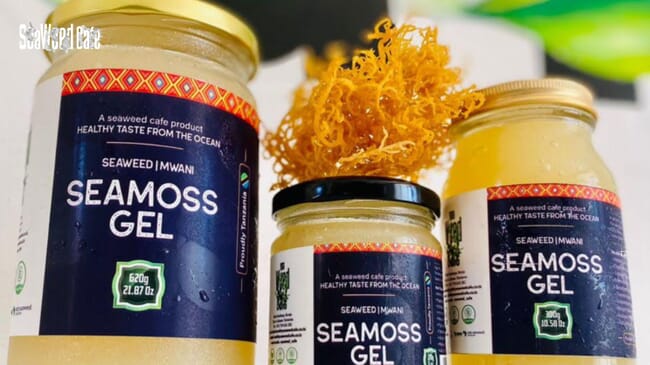
© Heathy Seaweed Co
According to a post on the accelerator's LinkedIn page, the 13 companies are “addressing some of the most urgent challenges in ocean innovation” and the cohort “represents Katapult Ocean’s most technically advanced and commercially mature group of startups to date”. Yet only one of the group - Healthy Seaweed Co - has a clear aquaculture connection.
The 13 companies are:
Healthy Seaweed Co (Tanzania) aims to transform Tanzanian seaweed into certified superfoods that fight malnutrition, tackle non-communicable diseases, and empower women farmers. Through its “Sea to Plate” model, the company pays farmers above traditional rates while producing gels, sauces and powders for local and international markets.
Atlantic Fish Co (US) uses cellular agriculture to create sustainable, cultivated seafood.
Ammobia (US) is developing a novel system for ammonia production.
Brineworks (Netherlands) is developing low-cost direct air capture possible with its electrolyzer technology.
Bluemethane (UK) is capturing methane from liquid waste streams.
Aquaria (US) is developing water generators that harvest humidity directly from the atmosphere to produce thousands of gallons of drinking water per month.
Hohonu (US) is developing sensors and software to protect communities from flooding.
Birch Biosciences (US) uses AI-designed enzymes to make plastic recycling more economical and circular.
Aquagga (US) develops and deploys industrial-scale systems that permanently destroy PFAS, the toxic “forever chemicals” contaminating water worldwide.
Soarce (US) develops nanocellulose-based coatings and additives from seaweed to make composite parts stronger, lighter, and cheaper.
Living Ink Technologies (US) has developed a pigment that transforms discarded algae into a carbon-negative alternative to fossil-fuel-based carbon black,
Archireef (Abu Dhabi) is developing 3D-printed tiles and panels to restore marine habitats.
Clearbot (Hong Kong) is developing AI-guided, all-electric autonomous boats that use computer vision and GPS to collect floating debris.



